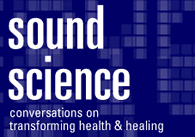News Release: Research, School of Medicine, Winship Cancer Institute, Woodruff Health Sciences
Jan. 16, 2009
Emory Sound Science Podcast: Fruits and Vegetables in Cancer Prevention and Treatment

Relatively recently, researchers have become keenly interested in exploring which food compounds are beneficial in treating and preventing serious diseases such as cancer and osteoporosis.
Omer Kucuk, MD, is one of those researchers. Kucuk, a professor of hematology and medical oncology at Emory Winship Cancer Institute, studies specific food compounds and their effect on cancer prevention and treatment. Evidence indicates that some food compounds, such as soy isoflavones and curcumin, can increase the effectiveness of chemotherapy and radiation therapy.
To listen to Kucuk's own words about which food compounds affect cancer prevention and treatment, access Emory's new Sound Science podcast at http://whsc.emory.edu/soundscience/.
Kucuk conducted the first clinical trials to show the benefits of soy and lycopene supplements in prostate cancer treatment.
"In our preclinical studies we have observed that taking soy isoflavones during chemotherapy and radiation for advanced prostate cancer can improve the efficacy of the treatments," says Kucuk. "The compounds sensitize the cancer cells to chemotherapy and radiation while at the same time they protect the normal tissues from side effects."
Most nutritional compounds used for therapy or disease prevention can be taken as part of a routine diet and have little if any side effects, Kucuk says. "People can get enough lycopene by eating tomato paste and tomato sauce, which is very rich in lycopene. So, if people ate a couple of ounces of tomato paste a day as part of a regular diet, they would eat enough to get all the benefits," he says.
Kucuk and his colleagues are currently exploring how soy isoflavones make chemotherapy and radiation more effective. "These are pleiotropic agents. That means they affect multiple pathways in cancer cells as well as other cells," Kucuk says. "This is actually good, because a lot of the drugs that are developed target one pathway, and they're usually very toxic. But because nontoxic nutritional compounds work with multiple pathways they have mild side effects making them very attractive for treatment."
Kucuk recently joined Emory Winship from the Karmanos Cancer Center at Wayne State University in Detroit, where he was a professor and co-leader of the population sciences and prevention program and a member of genitourinary and head and neck cancer multidisciplinary groups.
He is on the editorial boards of publications including Cancer Detection and Prevention and Cancer Epidemiology, Biomarkers and Prevention.
###
The Robert W. Woodruff Health Sciences Center of Emory University is an academic health science and service center focused on missions of teaching, research, health care and public service. Its components include schools of medicine, nursing, and public health; Yerkes National Primate Research Center; the Emory Winship Cancer Institute; and Emory Healthcare, the largest, most comprehensive health system in Georgia. The Woodruff Health Sciences Center has a $2.3 billion budget, 17,000 employees, 2,300 full-time and 1,900 affiliated faculty, 4,300 students and trainees, and a $4.9 billion economic impact on metro Atlanta.
Learn more about Emory’s health sciences:
Blog: http://emoryhealthblog.com
Twitter: @emoryhealthsci
Web: http://emoryhealthsciences.org
